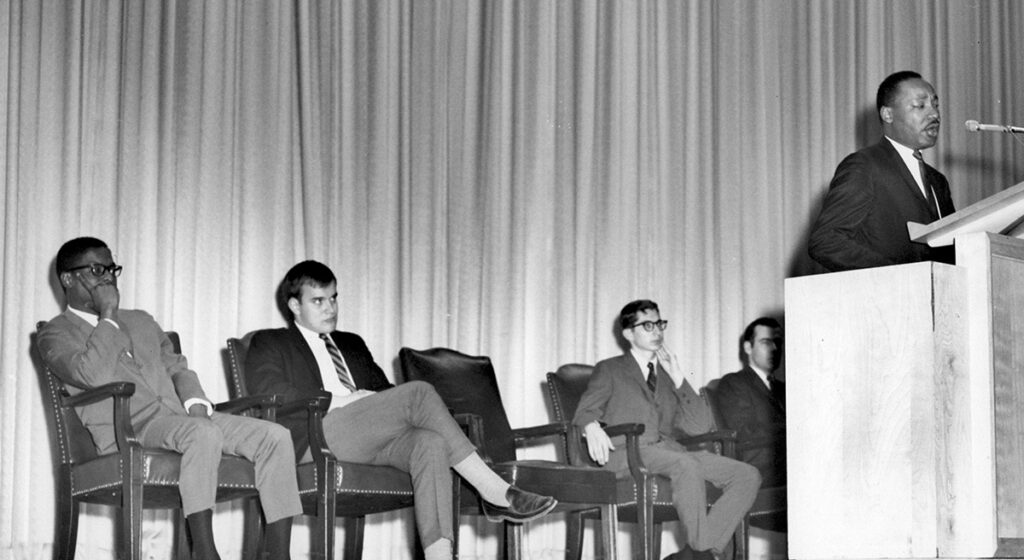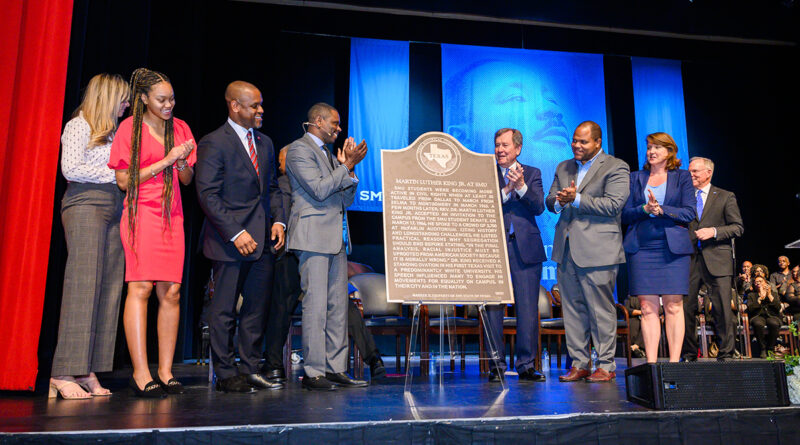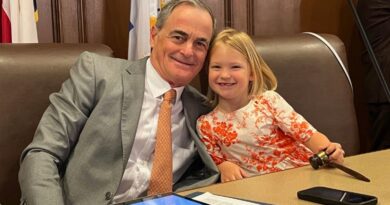Marker Commemorates MLK’s 1966 Speech at SMU
Members of SMU’s student senate invited the Rev. Martin Luther King Jr. to speak on campus in 1966.
Fifty-plus years later, students helped lead the application process that culminated in a Feb. 21 dedication of a Texas Historical Commission marker at the site of King’s March 17, 1966, speech — McFarlin Auditorium.
King discussed slavery, segregation, the struggle for racial justice, and his philosophy of nonviolence during his hour-long speech before a standing-room-only crowd.
“To put it figuratively, in biblical language, we’ve broken loose from the Egypt of slavery. We have moved through the wilderness of legal segregation, and now we stand on the borderland of integration,” King said. “I am convinced the system of segregation is on its deathbed today, and the only thing uncertain about it is how costly the diehards and the extreme segregationists will make the funeral.”
Student Senate members Fred Hegi, Charles Cox, and the late Bert Moore invited King to speak on campus, and Fred and Jan Hegi, Charles Cox, and Anne Kirk (daughter of Bert Moore) reunited for the dedication of the marker.
Also attending the dedication were Dallas Mayor Eric Johnson; St. Luke Community United Methodist Church pastor, Project Unity founder, and SMU alumnus and trustee Richie Butler; SMU President R. Gerald Turner; and alumna Carson Dudick, who worked with archivist Joan Gosnell to search for documentation of King’s visit to draft the historical marker application.
“This plaque will not only help us to remember the historic day that Dr. King spoke, but also helping us to remember our role in bringing his vision to life on our campus and in our world,” Turner said.

Johnson spoke about Dallas’ history with race relations and the city’s efforts to be “more inclusive.”
“Standing here today, it’s really difficult to imagine the Dallas that Dr. Martin Luther King Jr. visited in 1966. Racial divides in our nation, especially in the south, were incredibly stark,” Johnson said. “While we still live with the memory and the scars of past generations, we’ve made great strides forward, and we have broken from our past. As a people, we are not the same today as we were then.”
Dudick spoke about her involvement in SMU’s Voices of Oral History Project as a student, which is how she learned in 2018 about King’s speech at SMU and became passionate about marking the significance of the site. She applied for a state historical marker that same year.
“I walked by McFarlin Auditorium nearly every day, and yet the historic significance of this place was shrouded by a lack of recognition,” Dudick said. “Recognition for Dr. King’s work not only in our nation, but centrally on our campus continues to be an important reminder of the work he has done and the work still to be done to strive for racial and economic equality in our nation.”
Butler encouraged people to continue asking themselves, “What are you doing to advance race relations?”









